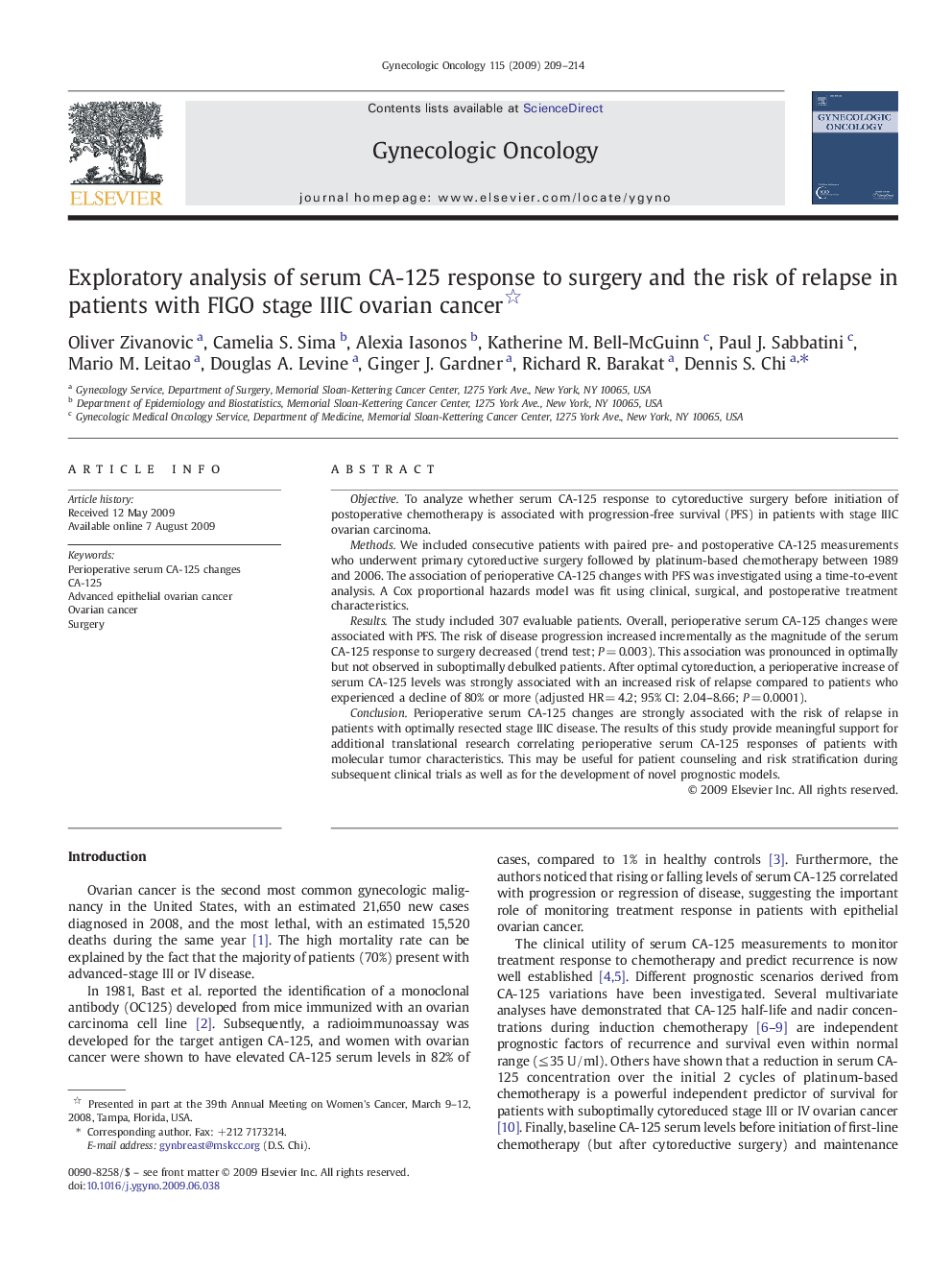| Article ID | Journal | Published Year | Pages | File Type |
|---|---|---|---|---|
| 3943286 | Gynecologic Oncology | 2009 | 6 Pages |
ObjectiveTo analyze whether serum CA-125 response to cytoreductive surgery before initiation of postoperative chemotherapy is associated with progression-free survival (PFS) in patients with stage IIIC ovarian carcinoma.MethodsWe included consecutive patients with paired pre- and postoperative CA-125 measurements who underwent primary cytoreductive surgery followed by platinum-based chemotherapy between 1989 and 2006. The association of perioperative CA-125 changes with PFS was investigated using a time-to-event analysis. A Cox proportional hazards model was fit using clinical, surgical, and postoperative treatment characteristics.ResultsThe study included 307 evaluable patients. Overall, perioperative serum CA-125 changes were associated with PFS. The risk of disease progression increased incrementally as the magnitude of the serum CA-125 response to surgery decreased (trend test; P = 0.003). This association was pronounced in optimally but not observed in suboptimally debulked patients. After optimal cytoreduction, a perioperative increase of serum CA-125 levels was strongly associated with an increased risk of relapse compared to patients who experienced a decline of 80% or more (adjusted HR = 4.2; 95% CI: 2.04–8.66; P = 0.0001).ConclusionPerioperative serum CA-125 changes are strongly associated with the risk of relapse in patients with optimally resected stage IIIC disease. The results of this study provide meaningful support for additional translational research correlating perioperative serum CA-125 responses of patients with molecular tumor characteristics. This may be useful for patient counseling and risk stratification during subsequent clinical trials as well as for the development of novel prognostic models.
